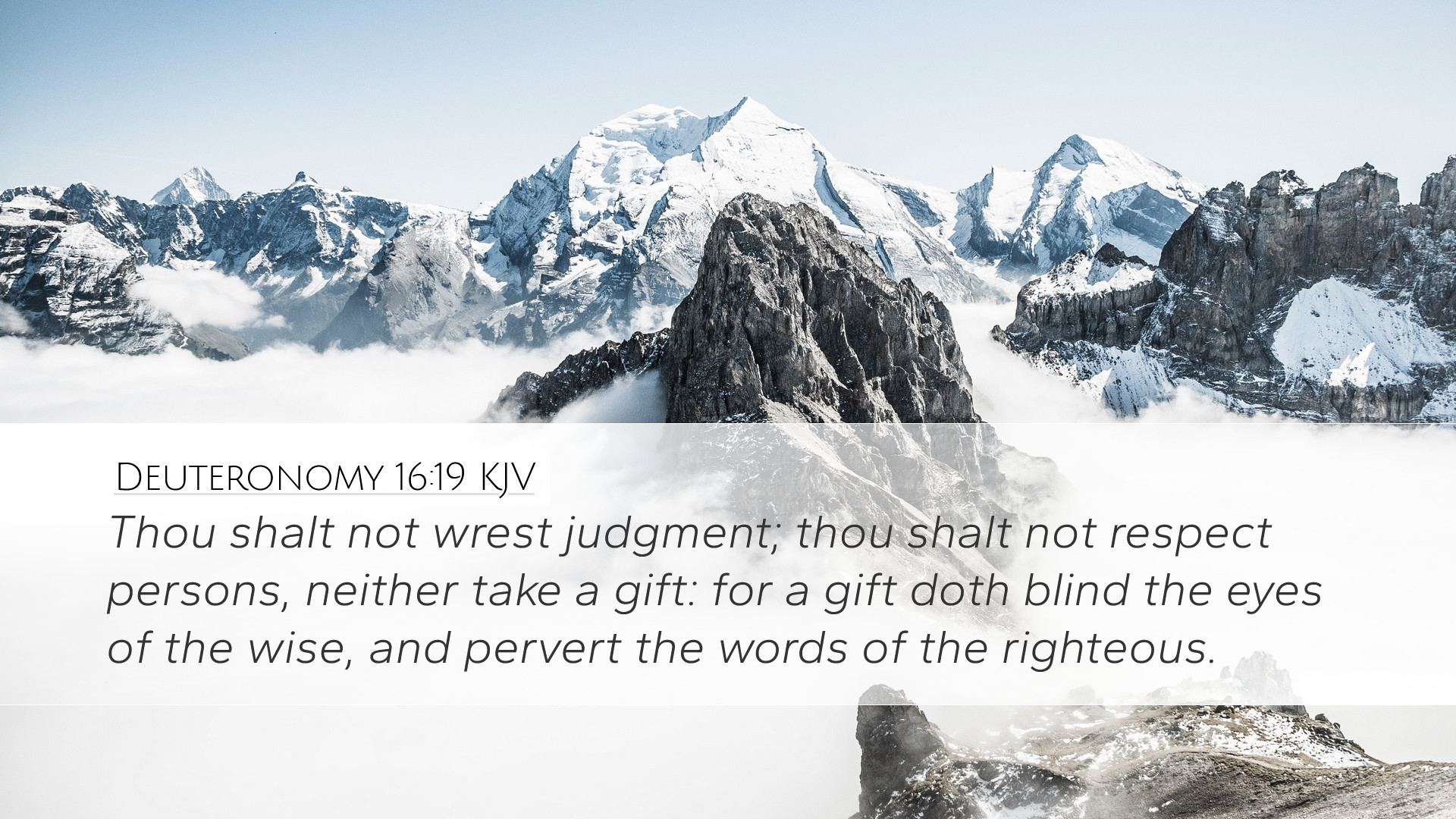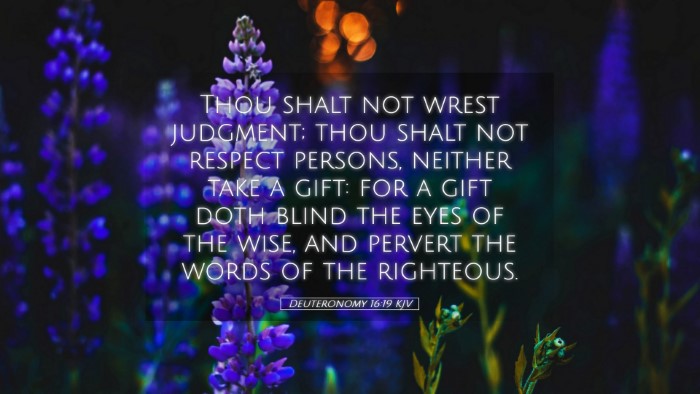Commentary on Deuteronomy 16:19
Deuteronomy 16:19 states: "Thou shalt not wrest judgment; thou shalt not respect persons, neither take a gift: for a gift doth blind the eyes of the wise, and pervert the words of the righteous." This verse, nestled in the context of justice and governance, offers profound insights into the nature of equitable judgment—an essential theme for any society, particularly one under divine instruction.
Contextual Understanding
Deuteronomy serves as a reiteration of God's Law to the Israelites, addressing how they ought to conduct themselves in the Promised Land. The chapter outlines guidelines for worship, justice, and community welfare. Recognizing the serious implications of judicial integrity, this verse is crucial for those in leadership and positions of authority.
Key Themes
- Judicial Integrity: The call not to "wrest judgment" is a stern admonition against corruption and manipulation of justice. Leaders are reminded that their judgments must be unbiased and uphold truth.
- Impartiality: The phrase "thou shalt not respect persons" stresses that all parties, regardless of status or influence, must be treated equally in the eyes of the law.
- Corruption through Gifts: The warning against accepting gifts highlights the potential for bribery to distort and undermine justice. A clear distinction is made whereby gifts can pervert wisdom and fairness.
Commentaries Overview
Matthew Henry's Commentary
Matthew Henry emphasizes the importance of impartiality in judgment, asserting that it is a divine command. He explains that favoritism can lead to disastrous consequences, robbing the oppressed of their rights and undermining societal order. Henry further notes that accepting bribes can blind even the wise and lead them astray from making fair decisions. His perspective underscores the divine nature of justice as reflective of God's character.
Albert Barnes' Commentary
Albert Barnes sheds light on the social implications of this verse. He remarks that a just society flourishes when those in authority act without prejudice. Barnes elaborates on the dangers of disregarding justice for personal gain and the cumulative damage it does to community integrity. He echoes the sentiment that true wisdom cannot be compromised by selfish desires, advocating for a systemic integrity that reflects a genuine adherence to God’s laws.
Adam Clarke's Commentary
Adam Clarke takes a historical approach, elucidating the social structures of the Israelites and the potential for corruption within them. He insists on the necessity of transparency and ethical standards among judges. Clarke also interprets the phrase “a gift doth blind the eyes of the wise” as a solemn warning against the moral dangers of wealth and power. He argues that maintaining a clean conscience and moral integrity is paramount for those in positions of authority.
Application and Reflections
For modern-day pastors, theologians, and Bible scholars, Deuteronomy 16:19 serves as a timeless reminder of the importance of justice in godly leadership. The integrity of judgment is foundational to the moral fabric of any community, particularly within the church. This admonition against gifts and favoritism resonates deeply in today's socio-political landscape, where the integrity of leadership is frequently challenged.
Implications for Leadership
- Leadership Ethics: Today’s leaders must uphold justice, recognizing that their influence carries the weight of their moral standing.
- Promotion of Justice: Church leaders are encouraged to advocate for social justice and equality, reflecting God’s kingdom on earth.
- Personal Reflection: Individuals in authority positions should regularly reflect on their motivations and biases, seeking God's guidance in their decisions.
Conclusion
Deuteronomy 16:19 encapsulates a critical principle of divine justice applicable across ages. It challenges leaders to pursue truth with integrity while offering encouragement for the faithful to seek equitable treatment in societal structures. As we grapple with contemporary issues of justice and leadership, may we draw wisdom from this passage and the insights of those who have interpreted it, committing ourselves to reflect God's justice in all areas of life.


